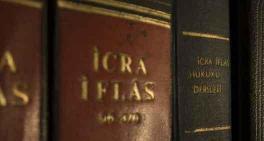Trump seems likely to win travel ban case at Supreme Court
Legal Compliance
President Donald Trump appears likely to win his travel ban case at the Supreme Court.
Chief Justice John Roberts and Justice Anthony Kennedy both signaled support for the travel policy in arguments Wednesday at the high court. The ban's challengers almost certainly need one of those two justices if the court is to strike down the ban on travelers from several mostly Muslim countries.
The travel ban case is the court's first comprehensive look at a Trump policy - one of considerable importance to the president and highly controversial since it was first rolled out a week after Trump took office.
Justice Sonia Sotomayor was the most aggressive questioner of Solicitor General Noel Francisco in his defense of the Trump policy, and the three other liberal justices also raised questions about it.
The justices voted in December to allow the policy to take full effect pending their full consideration. Wednesday was the first time they took it up in open court.
The Trump administration is asking the court to reverse lower court rulings that would strike down the ban.
The Supreme Court is considering whether the president can indefinitely keep people out of the country based on nationality. It is also looking at whether the policy is aimed at excluding Muslims from the United States. A decision is expected by late June.
Kennedy challenged lawyer Neal Katyal, representing the policy's opponents, about whether the ban would be unending. He said the policy's call for a report every six months "indicates there'll be a reassessment" from time to time.
Related listings
-
Supreme Court addresses question of foreign law in US courts
Legal Compliance 06/16/2018The Supreme Court says United States federal courts should consider statements from foreign governments about their own laws but do not have to consider them as binding.Justice Ruth Bader Ginsburg wrote for a unanimous court that federal courts shoul...
-
MMA star Conor McGregor heads to court for melee charges
Legal Compliance 06/13/2018Mixed martial arts star Conor McGregor is due in court for a hearing on charges stemming from a backstage melee that was caught on video.He's expected to be joined in Brooklyn on Thursday by friend and co-defendant Cian (KEE'-uhn) Cowley.Video showed...
-
Gamers in court for first time after Kansas 'swatting' death
Legal Compliance 06/13/2018Two online gamers whose alleged dispute over a $1.50 Call of Duty WWII video game bet ultimately led police to fatally shoot a Kansas man not involved in the argument will make their first appearances in court Wednesday in a case of "swatting" that h...

Car Accident Lawyers in New Rochelle, New York
If you have gotten in a car accident, it could seriously change your life. Whether the accident was caused by the other party’s fault or a fault of your own, you’ll want to to make sure that you are ready to prepare yourself for any cases that might follow.
Immediately following any type of car accident, it is important to take certain steps to ensure that the courts will treat you with respect and fairly. First, assess your mental and physical condition. Make sure right after the accident, you document any information regarding the accident and situation, it can be of great help later on.
You’ll want to make sure that you seek professional help for any medical conditions you may be experiencing. Do not wait to seek medical attention, you’ll want to make sure that you have documented evidence of the injury that was caused by the accident. The amount of treatment is also taken into consideration in every case.




